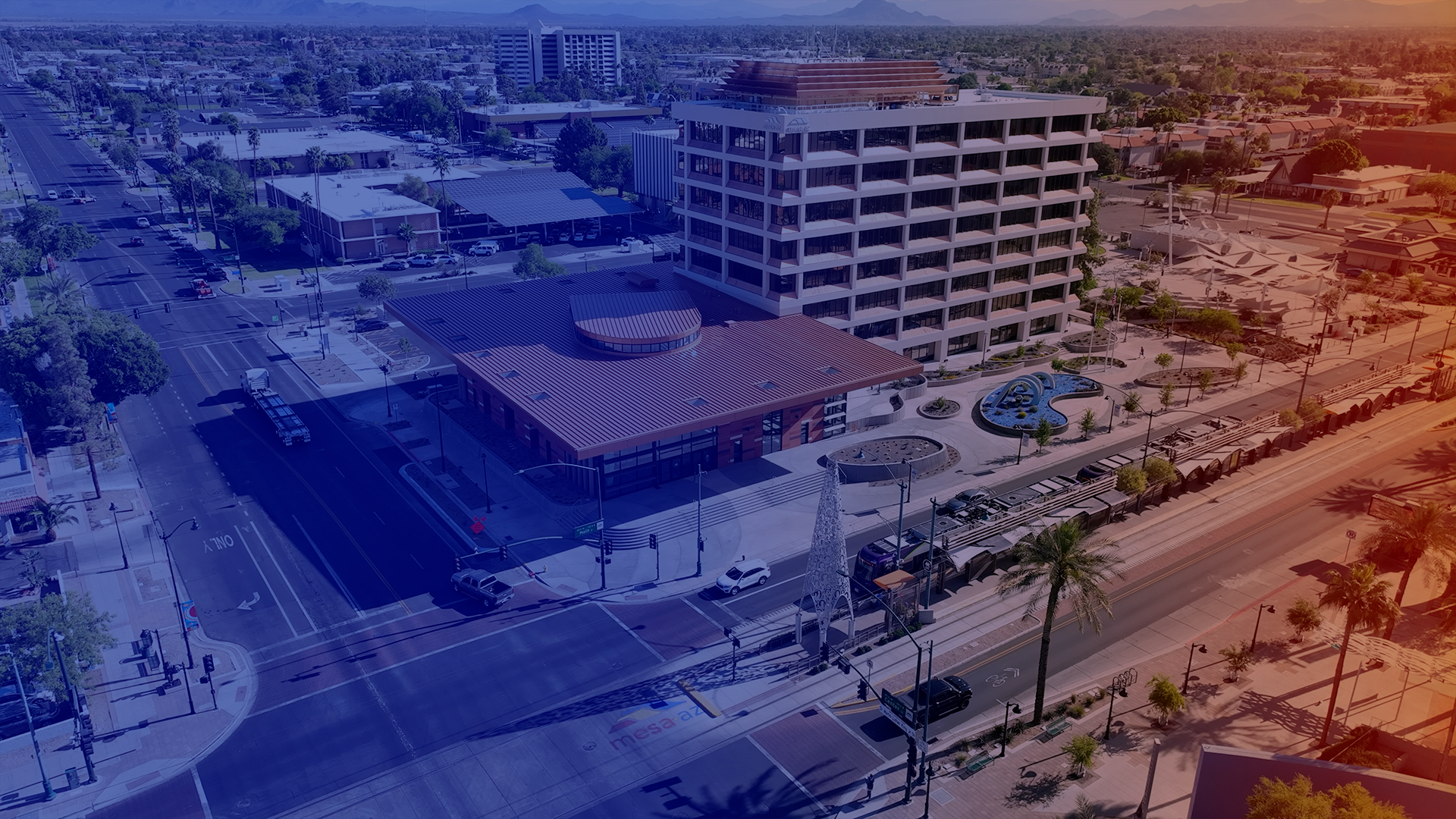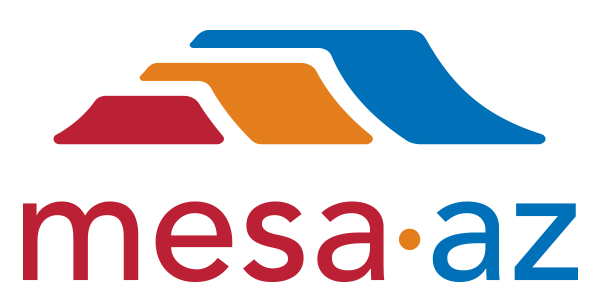

MesaNow
City of Mesa News


City of Mesa News

In case you missed it, here is a story from the Arizona Republic about how Mesa is helping to fix the mental health crisis.
***
A mental health crisis is not a crime, but police often are called upon to respond. Here's how Mesa hopes to fix that
Alison Steinbach
Arizona Republic
Mesa is working to fix a problem: Having a mental health crisis is not a crime, but crime solvers are providing the primary response.
In 2019, 93% of 21,765 emergency calls for mental health or welfare checks in Mesa were directed to police and 7% to the city's fire and medical department.
Fewer than 2% of those calls to police were diverted to a crisis line in 2019, but that is a third option the city aims to expand -- directing calls to trained mental health experts who can better respond to people in crisis.
"What we want to see is a systematic change in Mesa that really creates behavioral health as a third effective option any time you call 911," said John Pombier, a former city prosecutor who works closely with police in his role as assistant city manager.
He said this offers a "compassionate response to a mental health issue, not a crime."
More than a year ago, Mesa began directing some nondangerous mental health calls to a local nonprofit's crisis line.
This month, the city added a mental health specialist from the nonprofit, Solari Crisis & Human Services, to its 911 dispatch center. The city contracted with Solari for $75,000 annually. The specialist is expected to help divert calls to the best available resources, including, at times, a trained clinician over the phone rather than a sworn police officer at the door.
Phoenix implemented a similar program about a year ago, with a Solari mental health specialist based in its 911 dispatch center.
Building on previous efforts
This is not Mesa's first effort to improve how police respond to people experiencing mental health crises.
Historically, the traditional approach has led to some fraught encounters. An investigation by The Arizona Republic found that at least 90 of the 600 people who Arizona law enforcement shot at between 2011 and 2018 were experiencing some form of a mental health crisis. Experts say the number is likely much higher.
The likelihood of being killed during an encounter with police was 16 times higher for people with untreated serious mental illness than other civilians, according to a 2015 study from the national Treatment Advocacy Center.
So Mesa over the past few years has worked to change its approach, including to create a dedicated Crisis Response Team and train officers on how to help people experiencing mental health crises. Some on the team have tried to dress more like counselors and less like police, driving in unmarked cars and opting for a polo shirt and body armor under their clothes instead of a uniform.
Many Mesa officers have completed 40 hours of crisis intervention training to help with these efforts. While the department sees this is a good start, they believe working more closely with Solari mental health specialists will be even better for residents and officers.
Triaging 911 calls
The mental health specialist based at Mesa's dispatch center can consult, train and help answer questions of 911 dispatchers about the types of calls that can be transferred to the crisis call line for a mental or behavioral health-type response.
"If we can appropriately identify these calls, we can save all those resources we are sending that are not the most appropriate resources to send," Pombier said.
"It should not be surprising to anyone that in times of severe mental stress, individuals would be best served by behavioral health specialists. The question is how do we figure out how to get that, and to be honest, we're not sure we know the answer yet, and that's why we're working with professionals to try to figure that out," he said.
The types of calls that can be sent to the crisis line include people experiencing suicidal thoughts, family issues, child mental health issues, anxiety, depression, psychosis and substance use issues, said Matthew Moody, Solari's director of contact center operations. Police still should be involved with calls where someone might be a danger to themselves or others, he said.
For situations where there's no immediate danger, a trained crisis specialist can understand why someone is in crisis and provide solutions, often all in a phone conversation, Moody said.
About 70% of crisis calls are resolved over the phone, he said. About 30% require a crisis mobile team to go out and help, and less than 1% require emergency services. For the 30% that require a mobile team response, the person in crisis is stabilized in their home or community 80% of the time and the situation is resolved, he said. If they need to go to a facility, that's also an option.
Beyond providing a more appropriate response,this could reduce unnecessary burdens on the court system and hospitals.
"Persons with behavioral health disorders are equally likely to be incarcerated as hospitalized," William Riley, professor at Arizona State University's College of Health Solutions, recently told the City Council.
Behavioral health crises are medical issues that do not need law enforcement as a response unless there is a danger to the individual or others, he said.
Goal: double transfers to crisis center in a year
Mesa is currently sending an average of about 100 calls a month to the crisis line at Solari, formerly called Crisis Response Network.
Moody expects that to increase by 50% in six months and at least 100% in a year as 911 dispatchers learn more about what types of calls can go to the crisis line instead of police.
Pombier said he hopes this increased focus on mental health-oriented responses will help both residents and police officers.
"Our most trained law enforcement officers are nowhere near as well trained as a brand-new behavioral health specialist, and so we desperately want to get the professionals on the scene of the calls where they can be of the most value," he said.
'Not everything's a nail'
Mayor John Giles said there is no more important issue in Mesa than supporting a more targeted approach to emergency calls.
"We want to get better. We keep sending people with hammers to fix problems, and that's not always the right thing -- not everything's a nail," he said.
Giles, at another city meeting this spring, alluded to a recent ASU survey that shows Mesa residents largely support sending non-police staffers along with police officers to mental health calls that come in to 911.
The root cause of many police calls relate to issues such as substance abuse or mental health, he said. "That's reflected, I think, in what we've seen here in the public's perception of we need a paradigm that acknowledges that reality."
The survey conducted by ASU's Morrison Institute for Public Policy shows broad support in Mesa for these types of changes. The survey shows:
About 70% of residents responding to the survey want the city to address calls about mental health crises with teams of police officers and non-police alternatives.
17% of residents want only non-police alternatives to respond to these types of 911 calls.
11% want only police officers to respond to mental health calls.
74% of respondents support using public funds to hire mental health professionals to respond to nonviolent mental health crisis calls.
The live telephone survey asked 811 Mesa residents questions about the Police Department and potential reforms. The survey's margin of error is 3.4% with a 95% confidence level.
Police Chief Ken Cost previously told The Republic that the department was working on new ways to respond to 911 calls so people get the help they need -- be it assistance with substance use or finding shelter for homeless people -- without necessarily requiring police as the first or primary response.
He said the community survey provides areas to "work on and to get better and to continuously improve at what we know we have to do in a lot of these categories."